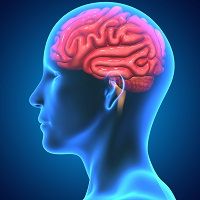MRI Could Be Used for Multiple Sclerosis Diagnostics
Researchers assessed 40 patients, 10 of whom of had MS, in order to test whether MRI scans were able to differentiate MS from microangiopathic brain lesions. The researchers believed the MRIs would be able to conduct a special scan called T2 weighted imaging, which identifies white matter.

Evidence of multiple sclerosis (MS) can be detected using magnetic resonance imaging (MRI) scanners in the near future, according to findings published in the Multiple Sclerosis Journal.
Researchers from the University of Nottingham assessed 40 patients from Nottingham University Hospitals NHS Trust, 10 of whom had MS, in order to test whether MRI scans were able to differentiate MS from microangiopathic brain lesions. The researchers believed the MRIs would be able to conduct a special scan called T2 weighted imaging, which identifies white matter, a signature of MS.
"We already knew that large research MRI scanners could detect the proportion of lesions with a vein in the brain’s white matter, but these scanners are not clinically available,” study leader Nikos Evangelou, DPhil, said in a press release. “So we wanted to find out whether a single brain scan in an NHS hospital scanner could also be effective in distinguishing between patients known to have MS and patients known to have non MS brain lesions. We are excited to reveal that our results show that clinical application of this technique could supplement existing diagnostic methods for MS.”
The patients were all scanned, and then disguised to be anonymous. All of the MS patients demonstrated central veins in more than 45 percent of brain lesions, the researchers explained. The rest of the brains had central veins visible in less than 45 percent of observed brain lesions. Then, the patients divided the brains into two different groups, but still observed the same results. A blind observer was able to correctly diagnose MS patients based on the scans using less than two minutes per scan.
The researchers believe these findings are significant because less than 50 percent of MS patients are diagnosed with the disease. Thus, they said, proving that diagnosing MS is a challenge particular to the disease.
The researchers say they are going to begin examining patients whose diagnoses are still uncertain by extending the study to larger towns throughout the United Kingdom to reach more patients. The investigators believe that within two years, they will know if the test is as accurate as these current findings indicate that it is. If so, MS diagnosis will be more reliable and accurate than ever. The team already presented their findings in the United States and is also planning a similar study based in the US.